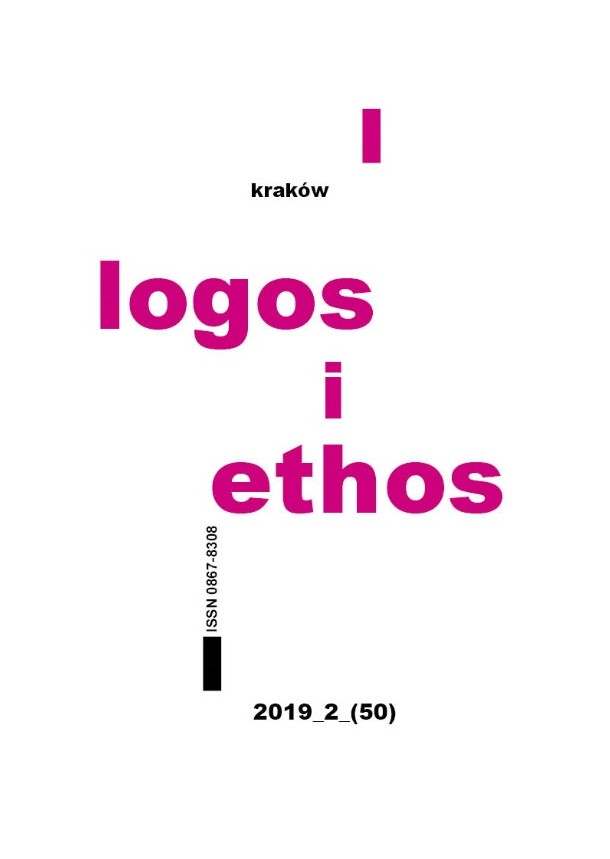Elizabeth Anscombe and an argument against contraception
DOI:
https://doi.org/10.15633/lie.3477Słowa kluczowe:
Teleolog, contraception, sexual ethics, marriage, nature, unnatural, moral philosophy, Thomas Aquinas, Elizabeth Anscombe, Herbert McCabeAbstrakt
In the 1960s, before the promulgation of Humanae Vitae, the Catholic philosophers Elizabeth Anscombe and Herbert McCabe OP debated whether there are convincing natural law arguments for the claim that contraception violates an exceptionless moral norm. This article revisits those arguments and critiques McCabe’s approach to natural law, concerned primarily with ‘social sin’ and not simply violations of ‘right reason,’ as one particularly ill-suited to addressing questions in sexual ethics and unable both to distinguish properly between certain forms of sexual wrongdoing and more obviously social sins such as theft, and also to distinguish between ‘natural’ and ‘unnatural’ sexual acts. Anscombe’s views, I argue, are closer to those of Thomas Aquinas and provide reasons for making the distinctions McCabe does not. An argument concerning the nature of the institution of marriage and the effects of non-marital acts on that institution is proposed as a way of strengthening Anscombe’s argument that contraception violates an exceptionless moral norm.
Bibliografia
Alison J., Good-faith learning and the fear of God, in: Opening Up: Speaking Out in the Church, eds. J. Filichowski, P. Stanford, London 2005.
Anscombe G. E. M., Contraception and Chastity, in: Faith in a Hard Ground: Essays on Religion, Philosophy and Ethics by GEM Anscombe, eds. M. Geach, L. Gormally, Exeter 2008, p. 170–192.
Anscombe G. E. M., Contraception and Natural Law, “New Blackfriars” 46 (1965), p. 517–521.
Kant I., The Metaphysics of Morals, Cambridge 1996.
Kolnai A., Sexual Ethics: The Meaning and Foundations of Sexual Morality, Aldershot 2005.
McCabe H., Contraceptives and Natural Law, “New Blackfriars” 46 (1964) 533, p. 89–96.
McCabe H., The New Creation, London 2010.
McCabe H., Veritatis Splendor in focus: Manual and rule books, http://www.natural-law-and-conscience.org/readings/mccabe.asp (19.07.2017).
McCarthy A., Ethical Sex: Sexual Choices and Their Nature and Meaning, South Bend 2016.
Nagel T., Sexual Perversion, in: Mortal Questions, by T. Nagel, Cambridge 1979, p. 39–52.
Scruton R., Sexual Desire: A Philosophical Investigation, London 2006.
Voorhoeve A., Conversations on Ethics, Oxford 2011.
Williams B., Tanner M., Correspondence and Comments, “The Human World” 9 (1972), p. 41–48.
Pobrania
Opublikowane
Numer
Dział
Licencja
W kwestii praw autorskich obowiązują następujące zasady:
1. Twórca oświadcza, że służą mu prawa autorskie do utworu i że nie są ograniczone w zakresie objętym niniejszym oświadczeniem oraz że utwór jest dziełem oryginalnym i nie narusza praw autorskich innych osób.
2. Twórca zezwala Uniwersytetowi Papieskiemu Jana Pawła II w Krakowie na nieodpłatne, niewyłączne i nieograniczone w czasie korzystanie z utworu, to jest:
- utrwalanie i zwielokrotnianie: wytwarzanie egzemplarzy utworu techniką drukarską, reprograficzną, zapisu magnetycznego oraz techniką cyfrową;
- obrotu oryginałem albo egzemplarzami, na których utwór utrwalono (wprowadzanie do obrotu, użyczenie lub najem oryginału albo egzemplarzy, publiczne wystawienie, wyświetlenie, a także publiczne udostępnianie utworu w taki sposób, aby każdy mógł mieć do niego dostęp w miejscu i w czasie przez siebie wybranym);
- włączenie utworu w skład utworu zbiorowego;
- udzielanie przez Uniwersytet Papieski Jana Pawła II w Krakowie sublicencji Creative Commons Uznanie autorstwa 4.0 Międzynarodowe (CC BY 4.0)
3. Uniwersytet Papieski Jana Pawła II w Krakowie udostępnia utwór na Platformie Czasopism należącej do uczelni, na licencji Creative Commons Uznanie autorstwa 4.0 Międzynarodowe (CC BY 4.0). Tym samym uprawnia wszystkich zainteresowanych do korzystania z utworu pod następującymi warunkami:
- zostanie podany autor i tytuł utworu,
- zostanie podane miejsce publikacji (tytuł czasopisma i adres internetowy do oryginalnie opublikowanego utworu).

